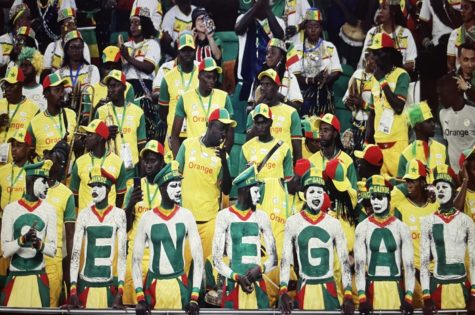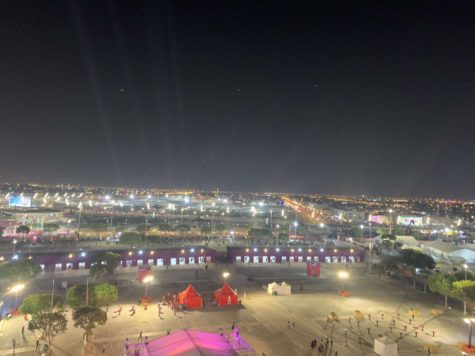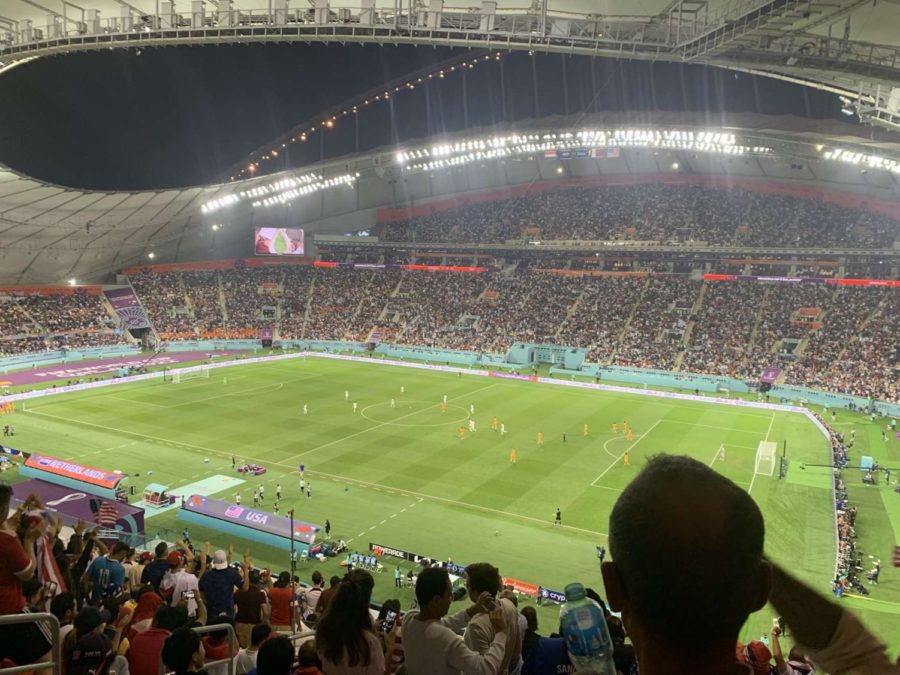The Competition of Dreams
The FIFA World Cup. The competition filled with emotions finally came around after 4 years and kicked off in Doha, Qatar.
The first knockout stage of the FIFA World Cup, USA vs Netherlands.
The most sought-after competition in all sports, the FIFA World Cup, kicked off on November 20, 2022, in Doha, Qatar, and ended on December, 18th. The championship, held every four years, is the most prestigious competition worldwide, attracting more than one billion viewers in 2018. A battle for the qualifications starts a year before the Cup, and every country is desperate to book a seat in the 32 spots available. There is no kid that doesn’t dream of representing their country on the beautiful stage with their last name printed on their back.
The World Cup is where the globe unifies into one. Despite the competition hosting only 32 nations, even if your country didn’t qualify, everyone watches, forgetting any other diplomatic conflicts occurring. Representing your country, your people, and your reputation creates an atmosphere for the players they normally can’t experience on their club teams. They experience the passion for their country firsthand. Since this tournament is held every four years, players play like it’s their last.
Not only is the World Cup a place to watch football, but it is a place to express your culture. Since teams come from every corner of the world, the audience is richly diverse, allowing for a platform where cultures can collide. For instance, Senegalian fans support their team with colorful Bazin, a dress made of brocade fabric, and perform Mbalax, a cultural dance. Most teams have a distinctive chant, whether it’s their national anthem or a song in their language, they sing the given melody as loud as possible in support of the players. Some fans show off their culture through their actions. Japanese fans helped clean up the stadium after their game, showing respect to the host nations, and to the competition as a whole.

The qualification is a process of ‘go big or go home.’ If you don’t qualify, you’ll have to wait another 4 years for another chance. Some players don’t have the time. The stake of missing a qualification is severe. Especially for players who made the national team in the last few years of their career, missing the qualifications means they will never have another chance to carry their national emblems.
The qualifications for the World Cup are divided into sectors depending on the continent. For Asia, 4 or 5 slots are available, Africa with 5 slots, North-Central America with 3 or 4 slots, South America with 4 or 5, Oceania with 0 or 1, and Europe with 13 slots. The reason some of these sectors have two possibilities for open slots is because of the possible Inter-Confederation matches. The runner-up countries that did not make the official qualifications are gifted another shot at a seat at the World Cup through Inter-Confederation playoffs. Out of 206 teams, only 32 nations make it. With no second chances, carrying the weight of your country in your hands creates tremendous pressure for the players.
In every World Cup, upsets, one-sided, and/or jaw-dropping games occur on a regular basis. In the 2014 World Cup, the hosting country, Brazil, lost 7-1 against Germany in the semi-finals. Brazil was the favorite to win the World Cup but was shut out by the overpowered Germany. The crying faces of Brazilian fans were displayed on the TV, and the match is still acknowledged as the most significant defeat between two superpowers in the history of the World Cup.
In the 2022 World Cup, upsets arose as Argentina vs Saudi Arabia ended in mayhem, with Saudi Arabia scoring 2 goals in less than 5 minutes, with the final score of 2-1. With a 90.91% win percentage, Lionel Messi, considered to be the greatest of all time to touch a ball, lost against Saudi Arabia, who have only won 3 World Cup games out of their 16. This outcome created a famous quote from the notable football commentator, Ian Darke, “On paper, Argentina should have won. But this game is played on grass.”
In the 2014 World Cup, Costa Rica overtook Italy and England for a spot in the round of 16. This is considered to be the greatest underdog story in World Cup history.
When countries enter the World Cup, the honor they carry can sometimes evolve certain players. James Rodriguez, a Columbian player in the 2014 World Cup, entered the competition as a no-name player. However, he led Columbia to the top 8 in the knockout stage and walked out of the World Cup with contracts from top teams in Europe. These player evolutions are able to occur with anyone, allowing underdog teams to make it far into the tournament.

This sporting event isn’t just a win or loss, however. It is a battle of national pride and honor. For some countries, the World Cup is a way to succeed without necessarily having significant economic or political power. In 1994, access to new technology allowed almost all of Columbia to watch the Columbian national team take on the world. To Columbia, the World Cup bolstered feelings of pride and patriotism for their country.
This passion isn’t always positive. In the 1994 World Cup, in a group stage match against the USA, Colombian player Andrés Escobar inadvertently directed a ball into the Columbian net, resulting in a loss, 2-1, which ended up eliminating Columbia from the tournament. A month later, while Escobar was out drinking with his friends, a gang approached Escobar and killed him. The game of football is just a sport. However, the passion for football isn’t. There are some countries where football is regarded as a cultural priority. Murders don’t occur in every tournament, in fact, this Escobar case was the only incident where a player was killed due to a mishap on the field. However, the honor these players carry isn’t a joke. Millions of players are battling to be a member of the 23-man national team, meaning the players elected have to play with a full heart.
This month-long competition is a rollercoaster of emotions. Joy, sadness, anger; you experience it all in the 90-minute display. Whether it be anxiousness to joy, like when Andrés Iniesta volleyed it in the back of the Dutch net to win the 2010 World Cup, or from anxiousness to sadness, like when the villains of the World Cup in 2014, Germany, who beat Brazil 7-1 the game before, subbed on Gotze who then had a perfect volley in extra time, directly into the side net of the Argentinian goal to win the 2014 World Cup. When the final triple whistle blows, you can either see hands celebrating in the air or the depressed backs of the players. Both situations are with tears, each with a different meaning.
The most prestigious competition in the entire world sets the stage for a once-in-a-lifetime story. With the rising popularity of football around the world, this tournament will only get better; the matches will be filled with more chants and more competition. The simple game that lasts 90 minutes brings the whole world together, and for some, this tournament is the most important event in their lives. As each national team player carries pressure and expectations on their backs, they will fight for more than a win. They will fight for the millions of people back home, praying at their TV screens. Most of all, they will fight to potentially lift up the golden trophy only a few have gotten their hands on.















